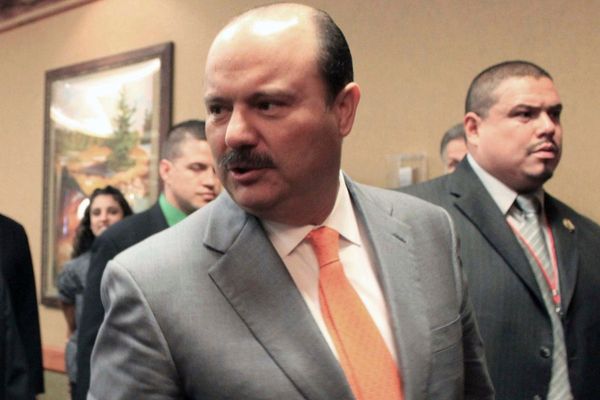Sixty years ago, Saunders Lewis delivered his historic “Tynged yr Iaith” (“Fate of the Language”) radio lecture.
In this prophetic speech, Lewis warned of the imminent death of the Welsh language if existing trends continued.
Six months later, in direct response to Lewis’ apocalyptic words, Cymdeithas yr Iaith Gymraeg (the Welsh Language Society) was founded. Cymdeithas has been instrumental in the survival and the rejuvenation of Welsh – against all odds, let’s be honest – championing, articulating, campaigning, agitating, often all at the same time.
In recent years, it’s had a more sympathetic ear at government level and argued successfully for the aspirational Welsh Government target of a million Welsh-speakers by 2050.
One hundred years ago, Sir Ifan ab Owen Edwards founded Urdd Gobaith Cymru in Llanuwchlyn, Bala.
With 60,000 members, the Urdd is the one of Europe’s largest voluntary youth movements. You’d have had to be on Mars to miss the recent celebrations for the organisation’s centenary. Mass social media uploading of karaoke-style videos of us singing and dancing to the Urdd anthem, Hei Mistar Urdd, shattered previous records and ended up in the Guinness Book of Records.
The Urdd rightly sees the Welsh language as a vehicle to help nurture a new generation of socially and politically engaged, healthy, active, confident, bilingual citizens. But the Urdd is about so much more than the language.
In a fortnight’s time, it’ll host its first major sports conference specifically for girls and young women.
In both our national languages, with an agenda deliberately designed to attract Welsh learners, #FelMerch (translated “Like a Girl”) will give young women aged between 16 and 25 an opportunity to gather and chat to each other and to be inspired by some feisty women who’ve carved out their own careers in sport.
I’m really looking forward to speaking at #FelMerch, along with some fabulous names like endurance adventurer and athlete Lowri Morgan, Wales Women’s national manager Gemma Grainger, sports minister Dawn Bowden MS and four-time Paralympian Hollie Arnold.
The conference will share ideas and best practices, offer additional training, set up volunteering opportunities and discuss the future focus for the programme. Proper co-production, as they say.
The gaping gender gap in sport is old news. At the risk of over-simplifying (but I’m not), women and girls do far less sport than men and boys and have precious little authority over how sport is run.
Recent research by Sport Wales shows that the pandemic widened inequalities in sports participation across both gender and socio-economic status. Women are more likely to be doing less sport than they did before Covid-19. We also feel guilty about not exercising more and are more worried about leaving the house to exercise. Nothing much new there.
Changing things usually needs altering who calls the shots. Only a third of the 200 or so places on the boards of the sporting governing bodies are held by women, and just a quarter of their bosses are female.
As I’ve said before, it’s nigh on impossible to run in someone else’s daps, so no wonder we still haven’t worked out how to attract and retain females in sport.
Even if we completely reorientated all funding to girls’ and women’s sport alone, we still wouldn’t make up for a century of deprivation and disadvantage. The truth is that girls will always be sporting Cinderellas as long as men continue to control the purse strings.
What’s different about the Urdd’s conference, then?
#FelMerch has sought to be innovative, arranging weekly inclusive face-to-face or digital activities, tackling rural and urban deprivation for those who don’t live in areas with good access to women and girls’ sporting activities and ensuring young women take ownership of what the Urdd delivers. It has appointed ambassadors to inspire others and organised women-only sports leadership and coaching courses.
Interesting that the Urdd has embraced equality so centrally in its work. I’ve long worried that an internal equality hierarchy is emerging. How can one form of structural inequality be more acceptable than another?
Given the recent cack-handed attacks on Welsh identity, aligning our language with other equality drives seems logical and constructive.
Saunders Lewis predicted that “the scorn and sneers of the English gutter journalist would be a daily burden” for those campaigning to protect Welsh. Well, he was right on that!
For me, it’s axiomatic that language is treated as a fundamental part of the equality matrix alongside age, race, sex, religion, sexuality, etc. But Welsh should also be treated as part of the solution.
That’s where the Urdd comes in as a mass movement which can cut across different identities and different inequalities.
Both its current CEO and youth president are women and more than half of the Urdd’s board of trustees are female, so it has skin in the game and deserves a voice.
Take a look at any park on a weekend morning and tot up the number of girls taking part in sport. While it’s much better than it was, it’s nowhere near equal. Yet, 56% of the 15,000 who participate in the Urdd’s weekly sports clubs are girls, so it’s clearly doing something right.
When I was an Urdd member all those years ago, there was more emphasis on recitation than rowing, prose not pilates, but all that’s changed. As recent Welsh media interviews by Cymru star (and former Urdd member) Aaron Ramsey show, sport can be a potent vehicle for changing attitudes towards the language too. Speakers at the #FelMerch conference like Gemma Grainger, who hopes to lead Cymru to the World Cup in Australia and New Zealand, are well aware of the need to develop a new generation of young women who can challenge men’s dominance of our beautiful game.
Increasingly there’s been a realisation that language policy needs to be better connected with other public policies – unemployment, the economy, housing, education, childcare etc. The drive to grow the language needs to be properly integrated with interventions on the economy, housing, childcare and education. The second home crisis, depopulation, low wages and unemployment are symptomatic of wider neoliberal policy failures that threaten Welsh too.
Speaking Welsh is a privilege, but it’s a privilege not currently afforded to all of us and that’s due to public policy choices.
Education is absolutely key, yet we know that demand for Welsh schools still exceeds supply, especially in areas where the language is currently weak. Take Newport, where 15% of parents want their children to be educated in Welsh but only 4% of schools are Welsh-medium.
Contrary to the views of Messrs Meades and Bowen, Welsh is not a moribund language, neither is it exclusive or insular to speak it. Oh, the irony when it’s fairly self-evident that it’s the attitudes traditionally held by monoglots that constrain and curtail.
Meanwhile, #FelMerch guest speaker Mah Zai Kakar, originally from Helmand Province in Afghanistan, was forced to flee the country last August.
Along with her brother Nasir, she was given shelter at the Urdd’s residential centre. She had been working with USAID, holding sessions for women so that they understood their rights and has now started to study for a law degree.
A special bond of trust and friendship has developed between the Afghan women and the Urdd’s female staff members. As they spoke little English, weekly meetings were held with a translator. Urdd staff also ensured that the young Afghan girls were made aware of the fact that women are offered more equal opportunities here in Wales and that a “nation of sanctuary” would be supportive of their hopes and ambitions.
Three of the Afghan families that were hosted by the Urdd have now settled in Cardiff and chosen Welsh medium education for their children at Ysgol Hamadryad and Ysgol Coed y Gof. According to their parents, the simple reason behind this was because the children spoke better Welsh than English having stayed at the Urdd Centre and immersed into the language in a natural environment.
For further evidence of reach, look at the Urdd’s apprenticeship scheme which provides opportunities for young people often lacking confidence in using Welsh. This allows them to gain qualifications and access to Welsh-language job opportunities in youth work, sport, recreation and childcare. Two-thirds of these Urdd apprentices are female.
The Urdd has established a partnership with the international agency United Purpose and some Urdd apprentices travelled to Kenya to work on “Moving the Goalposts”, which uses sport to promote leadership and develop confidence in girls. During the trip, they led football activities with more than 400 young girls to develop confidence as well as their sports and leadership skills. It is entirely possible and it is happening in every community of our country – to learn and qualify to work through both of our national languages. Who’d think it, Mr Meades?
The Urdd founder’s experience of World War I shaped his conviction that “waging war was not a way to achieve peace”.
As we hover on the brink of war in Ukraine, the Urdd’s “peace and goodwill” message has a special resonance. First shared a century ago, it remains the only message of its kind, sent by young people to the world every year without fail. The message was ahead of its time, an invitation to learn, not to preach.
Last year’s message, “equality for women and girls”, was written by Swansea University students on behalf of the young people of Wales, calling on people across the world to ensure that gender was “more than a hashtag”. The message was translated into 65 languages, reaching more than 84 million people.
In the spirit of putting its money where its mouth is, the Urdd has also sought to tackle period poverty by providing free menstrual materials at its residential centres, at the National Eisteddfod and at national sports events, meaning that more than 32,000 women and girls have access to period products. It has also offered its centres as relaxation retreats for vulnerable women.
Like most organisations established more than a century ago, it’s the men who’ve hogged the limelight. Yet there are plenty of unknown and unsung heroines, women like Eirys Edwards, wife of the Urdd’s founder Sir Ifan, and Norah Isaac, headteacher of the first Welsh school in Aberystwyth.
Then there’s Mari Emlyn, granddaughter of Ifan and Eirys ab Owen Edwards, who said in a recent interview that (unsurprisingly) her grandmother played a much bigger role in the founding and development of the Urdd than she has been credited with: “I’ve recently come across a clip of my grandfather saying, unprompted, on a black and white television programme that he wouldn’t have carried on with the Urdd if it wasn’t for my grandmother... Not only was she the secretary for years, she designed the first Urdd badge and she was also the head of the first Gwersylloedd yr Urdd for girls in Llangollen”.
Interesting, too, that Eirys Edwards only learned Welsh after meeting Sir Ifan. So the Urdd was co-founded by a Welsh learner – a useful reminder to us all that it’s not just about those gifted with Welsh from birth. Fitting, therefore, that more than half of the Urdd’s current members come from non-Welsh-speaking homes and more than half of the schools who take part in Urdd activities are not Welsh-medium schools.
There’s always more to do, but here’s hoping that programmes like #FelMerch will help imbue the next generation of women with a new sense of confidence and self-belief that will encourage them to do sport and anything else they fancy. Let’s hope the conference also shows how sport can be used a serious lever for promoting both the Welsh language and wider equality.
Connecting the language, sport and girls could be an irresistible cocktail that helps us to transcend historic divisions.
* Laura McAllister is a sports-mad academic from Bridgend. She is Professor at Cardiff University’s Wales Governance Centre and former captain of the Wales women’s international football team.







